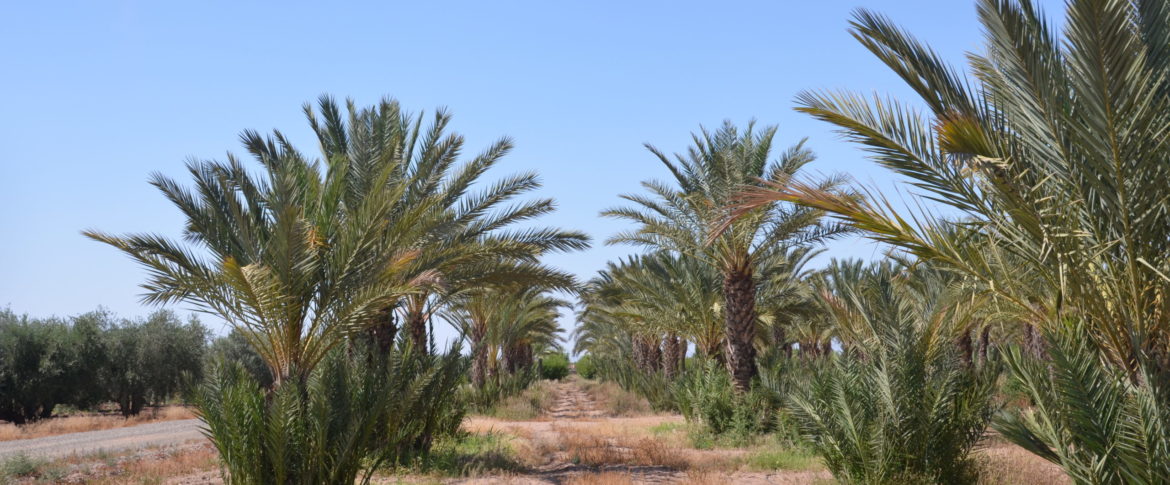
Improving Fertilization Management Practices of Date Palm Trees under Moroccan Conditions
Theme: Precision Nutrient Management
Lead
APNI
Supported by
APNI
Main Collaborators
INRA
Target Crops
Date Palm
Target Countries
Morocco
Description
In Morocco, the date palm (Phoenix dactylifera L.) is an essential component of the oasis ecosystem of arid and pre-Saharan regions. The total number of date palms in Morocco is estimated at 4.8 million covering an area estimated at 48,000 ha. Date palm production is very low and the average yield is estimated at 18 kg per tree, which satisfies less than 60% of Morocco’s national consumption. This is mainly due to traditional management practices of palm groves, which receive inadequate pruning, irrigation, fertilization, planting density, etc.. Farmyard manure is traditionally relied upon and is strongly preferred over inorganic fertilizer, even in modern farms. Very few plantations receive specialty fertilizers.
Previous research from date palm producing regions worldwide indicate that date palm trees require relatively large amounts of macronutrients to achieve good growth and production. Results agree that applications of N, P and K increase the number of leaves and bunches per palm, fruit yield, and total sugar content, all contributing to high fruit quality and better production economics. There is a lack of research focusing on nutrient management for date palm in North Africa. This project will address this knowledge gap through the assessment of the response of young and mature palms to NPK fertilizer.
Global Objective
Assessment of the response of date palm to inorganic fertilizer application.
Activity 1: Literature review on date palm fertilization.
Activity 2: Diagnosis of the current farmer fertilization practice of date palm in Morocco.
Activity 3: Establishment experiments for the assessment of young and mature date palm response to NPK.
